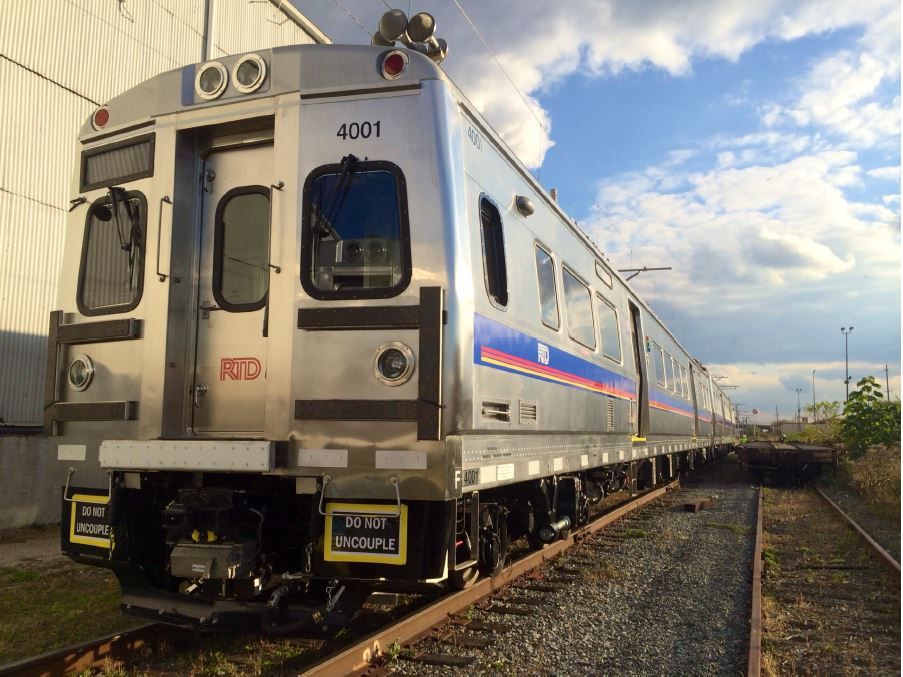Our weekly roundup of new and newsworthy transportation projects worldwide.
Arlington Pulls Plug on Columbia Pike, Crystal City Streetcars
Last week, this column reported that the election of a streetcar critic to the Arlington County Board threw the future of the long-planned Columbia Pike modern streetcar project into doubt. This week, there’s news that the board has removed all doubt about its fate: It’s off the drawing boards.
The Washington Post reported Nov. 18 that the board voted to stop all work on the Columbia Pike line and a companion line through Crystal City to Potomac Yard.
The move came when the project was well along the road to becoming reality. Officials in Arlington and Fairfax counties – the Columbia Pike line was to end in Bailey’s Crossroads in Fairfax, where county officials viewed it as a key to redeveloping the area – had secured funding from the Commonwealth of Virginia for about half the line’s cost, and Gov. Terry McAuliffe (D) also backed the projects.
But the line’s escalating price tag – $550 million when the board voted to scuttle it – and rising skepticism about the line’s promised benefits among Arlington voters produced a backlash at the polls. The board’s vote came on the heels of board member John Vihstadt (I) winning election to a full four-year term after winning a special election the year before with an anti-streetcar campaign.
Streetcar supporters said the vote brought to an end Arlington’s long history of using mass transit as a catalyst for revitalization as well as its tradition of consensus-building around large projects. The 4-1 vote to end work on the streetcar lines included two streetcar supporters who face re-election next year.
An unscientific poll on the Washington Post website showed that as of Nov. 24, opinion was nearly evenly divided among site visitors as to whether the streetcar was a good idea or a bad one: 3,509 visitors (50.37 percent) agreed that the vote to end work was a good decision, while 3,458 (49.63 percent) disagreed with the vote.
First Commuter Rail Cars Arrive in Denver
The Denver Regional Transportation District will kick off the holiday season with a celebration of another milestone in its ambitious FasTracks rail transit expansion program – the arrival of the first commuter rail cars that will operate on four lines now under construction.
The first four cars of a 66-car order arrived in Denver Nov. 20 after a trip over freight tracks from the Hyundai Rotem manufacturing facility in Philadelphia, the Denver Business Journal reports. The cars, which were built in South Korea and assembled in Philadelphia, resemble the first commuter rail cars the Korean company built for the North American market, the “Silverliner V” cars of the Southeastern Pennsylvania Transportation Authority’s Regional Rail network. (Read more about the Philadelphia rail car plant here and more about the larger trend of domestic transit manufacturing here.)
The Denver cars will operate on four routes originating at Denver Union Station. Three of them – the East Line to Denver International Airport, the Northwest Line to Westminster and the Gold Line to Arvada and Wheat Ridge – are being built by the same international consortium that will operate the lines, Denver Transit Partners, and will open in 2016. The fourth, the North Metro Line to Commerce City, Northglenn and Thornton, will open in 2018.
The cars will be on public display at Denver Union Station from Dec. 3 to Dec. 6. This week, the RTD will also celebrate another FasTracks milestone, the laying of the last segment of track for the East Line. The cost of the first three lines is $2.2 billion.
Mumbai to Add Two More Metro Lines
As of now, Mumbai, India’s financial center, has one operating metro line, and construction began this year on a second line set to open in 2021. Railway Gazette International reports that the Mumbai Metropolitan Region Development Authority (MMRDA) has approved the construction of two more lines that will also open in that year.
Work on Line 2, which had been previously authorized by the authority, is being rebid after the Maharashtra state government ended a concession agreement with a subsidiary of Line 1 operator Reliance Infrastructure for the construction of its initial segment, work on which was authorized in 2012 but suspended shortly afterward over environmental and administrative concerns. The new contract will cover work on the entire line, a 40-km underground line with 36 stations that will run from Mankhurd west to Bandra and Charkop, then north to Dahisar.
Line 4 will be 32 km long, with 24 underground and six elevated stations. It will connect Wadala in the south with Ghatkopar and Kasarvadavali in Thane, an upper-middle-class community north of the city.The total cost for Line 3 is estimated at 256 billion rupees ($4.1 billion U.S.), and Line 4 is projected to cost 191 billion rupees ($3.08 billion U.S.) Half the funding for the projects will come from international finance agencies. The Maharashtra and Indian governments will together cover 20 percent of the cost, and equity and debt will cover the remaining 30 percent.
The Maharashtra state government embarked on the metro project to improve mobility in the Mumbai region and relieve pressure on the city’s overcrowded suburban railway network.
Know of a project that should be featured in this column? Send a Tweet to @MarketStEl with the hashtag #newstarts.

Next City contributor Sandy Smith is the home and real estate editor at Philadelphia magazine. Over the years, his work has appeared in Hidden City Philadelphia, the Philadelphia Inquirer and other local and regional publications. His interest in cities stretches back to his youth in Kansas City, and his career in journalism and media relations extends back that far as well.
Follow Sandy .(JavaScript must be enabled to view this email address)








